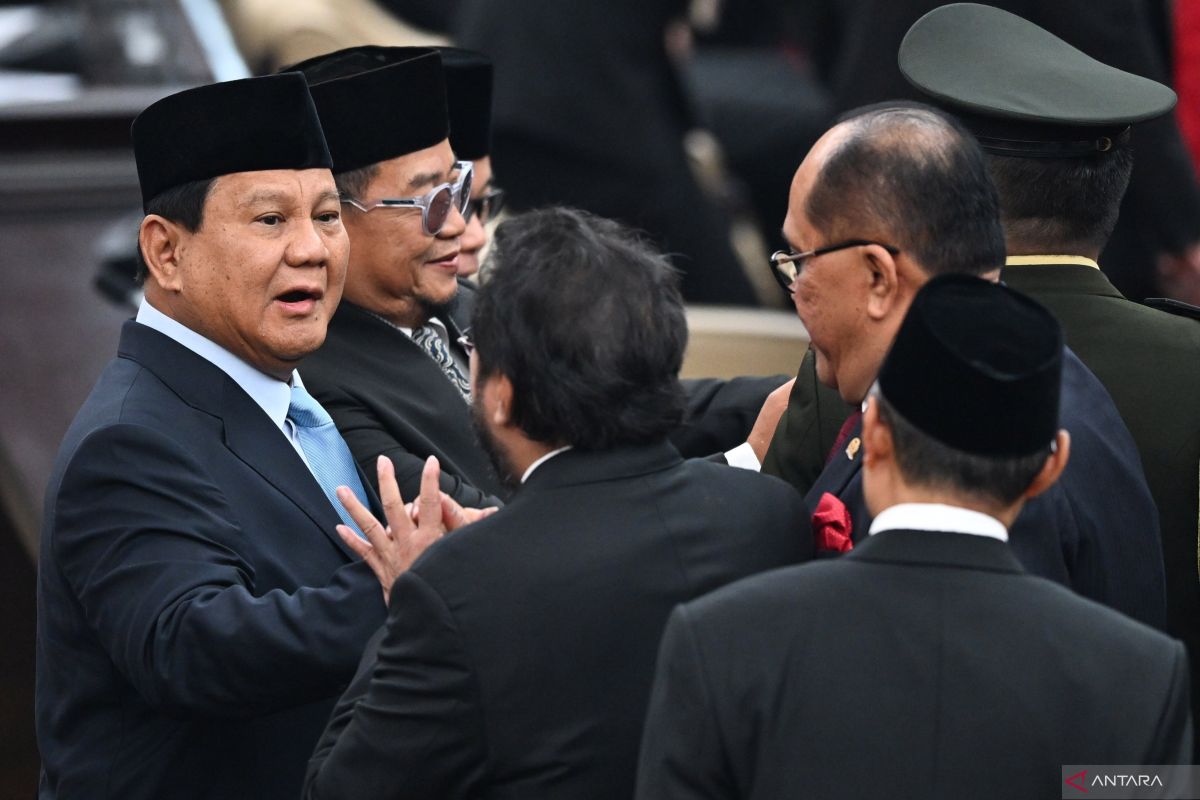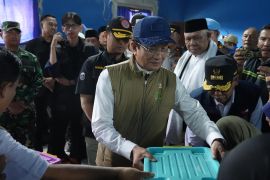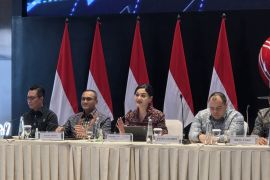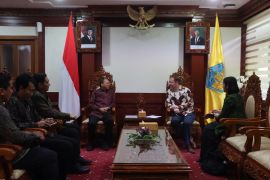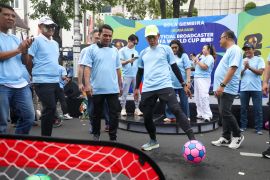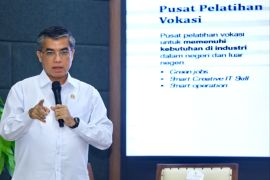Prabowo Subianto, who will lead Indonesia as president for the 2024-2029 period, carries the vision of "Working Together for Onward Indonesia towards Golden Indonesia 2045."
This vision bifurcates into three pillars, with the first being Asta Cita, which means eight missions, 17 priority programs, and eight quick impact programs.
In response to this, the parliament opens its arms wide open to Prabowo who will lead Indonesia for the next five years starting October 20.
In addition to preparing the 2025 State Budget (RAPBN) Draft that offers greater flexibility to the next government in preparing their programs, the legislators have decided to change the rules regarding the ministerial structure.
Thus, Prabowo has greater space to determine the number and nomenclature of his government's cabinet. Prabowo Subianto and his Vice President-elect, Gibran Rakabuming Raka, will reportedly have 44-46 ministries in the cabinet.
At the House Plenary Meeting on Tuesday (October 15), the legislators also confirmed having more commissions, with the figure reaching 13 for the next five years.
Furthermore, the House has started working normally on Wednesday (October 16). Indonesian Parliament Day is also commemorated on October 16.
With the addition of the commissions on the special day, the DPR will again start its journey by functioning as both the facilitator and supervisor for Prabowo's government in its efforts and strategies to carry Indonesia forward to become a more advanced nation.
Commission addition
The duties and functions of the 13 commissions in the DPR are not much different from the previous period of 2019-2024 when there were 11 commissions.
The two new commissions only get the shares of duties from the existing commissions.
The DPR leaders earlier stated that with the addition of the commissions, the number of their government partners would increase even further, as one commission was considered to have a surplus of partners.
The two additional commissions will be effective after Prabowo and Gibran are inaugurated and when they officially announce the nomenclature of the ministries.
Meanwhile, leaders in the Regional Representative Council (DPD) hinted at the possibility of an additional committee in that institution of senators.
However, the DPD is still waiting for the ministerial structure in the Prabowo era.
The People's Consultative Assembly (MPR), comprising all members of the people's representatives, including the DPR and DPD, echoed its commitment to always being the guardian of democracy and strengthening the functions of parliament.
Deputy Speaker of MPR Eddy Soeparno underscored the need to strengthen the parliament's budgeting and legislation functions to support the new government's goals that encompass striving to make the economy grow to 7-8 percent.
The two new commissions are aimed at following up with the steps of the Prabowo government.
"We need effective and efficient budgeting so that every rupiah we spend can generate economic growth," Soeparno remarked.
However, the addition of commissions and committees in the parliament is not solely about adjusting to the number of ministries in Prabowo's cabinet.
The Parliament also needs to ensure improvement in governance and performance of the legislators.
Lucius Karus, a researcher from the Indonesian Parliament Awareness Community Forum (Formappi), stated that the most important aspect is how the commissions can maximize the role of their members with measurable and assessable loads of duties.
"There must be internal management in the commissions to ensure their works are based on the goal of performance improvement," he remarked.
Absorbing more aspirations
One of the points in Prabowo-Gibran's "Asta Cita" is to strengthen democracy. The pair which secured 58 percent of the vote in the 2024 Presidential Election considers democracy to be the key to realizing the vision of Advanced Indonesia.
The parliament, which is a body that represents the people's voices, has agreed to support the Asta Cita mission.
At the latest Plenary Meeting, the House agreed to establish the People's Aspiration Body that will accommodate the hopes of the community, through direct and indirect means.
The body aims to gather and review public aspirations and submit the results to the appropriate council. It is also responsible for monitoring and following up on public reports and ensuring meaningful public participation during the legislative process.
The body is expected to present the existing parliamentary program, namely the proposal for the Electoral Area Development Program (UP2DP). Thus, every House member can propose development programs for their respective regions.
On the other hand, the DPD has planned something similar to DPR's People's Aspiration Body. The DPD intends to establish a Central Complaint Body to comprehensively capture the community's aspirations.
Meanwhile, the People's Aspiration Body should be supported by good governance as in the absence of it, the public's aspirations would be hindered. Moreover, it must not be the sole channel for receiving public complaints.
So far, people looking to convey their aspirations can contact the relevant House commissions.
Related news: Police to dispatch 6,757 personnel to secure Prabowo's inauguration
Related news: Indonesia's deputy minister-designates briefed by Prabowo
Translator: Bagus R, Kenzu
Editor: Azis Kurmala
Copyright © ANTARA 2024
